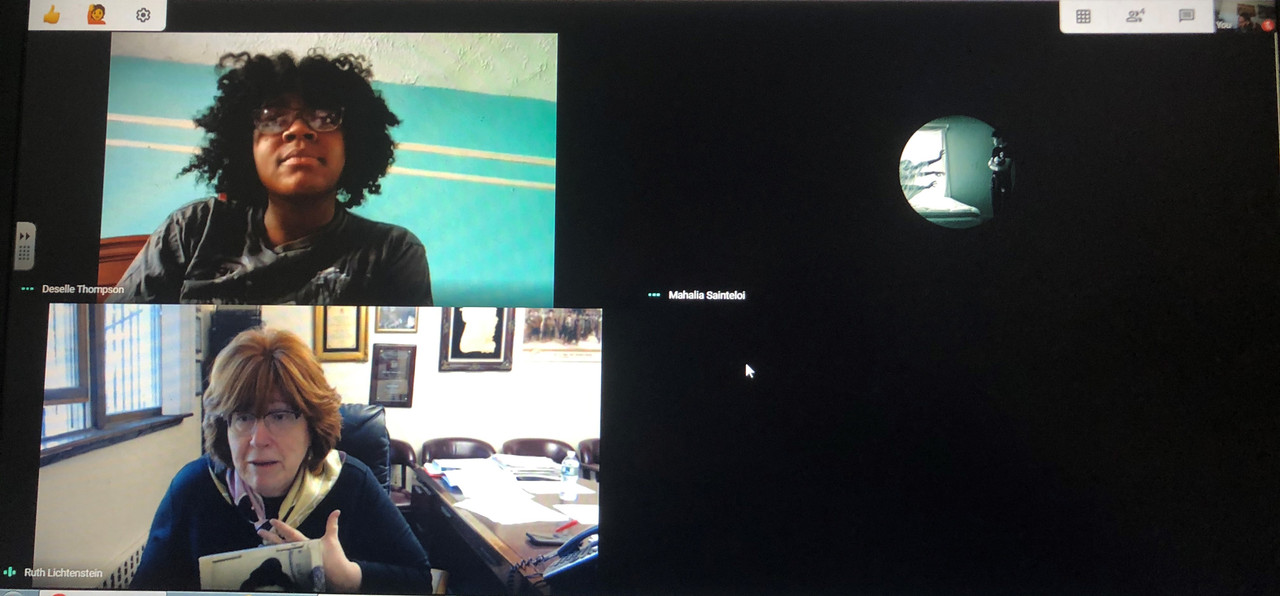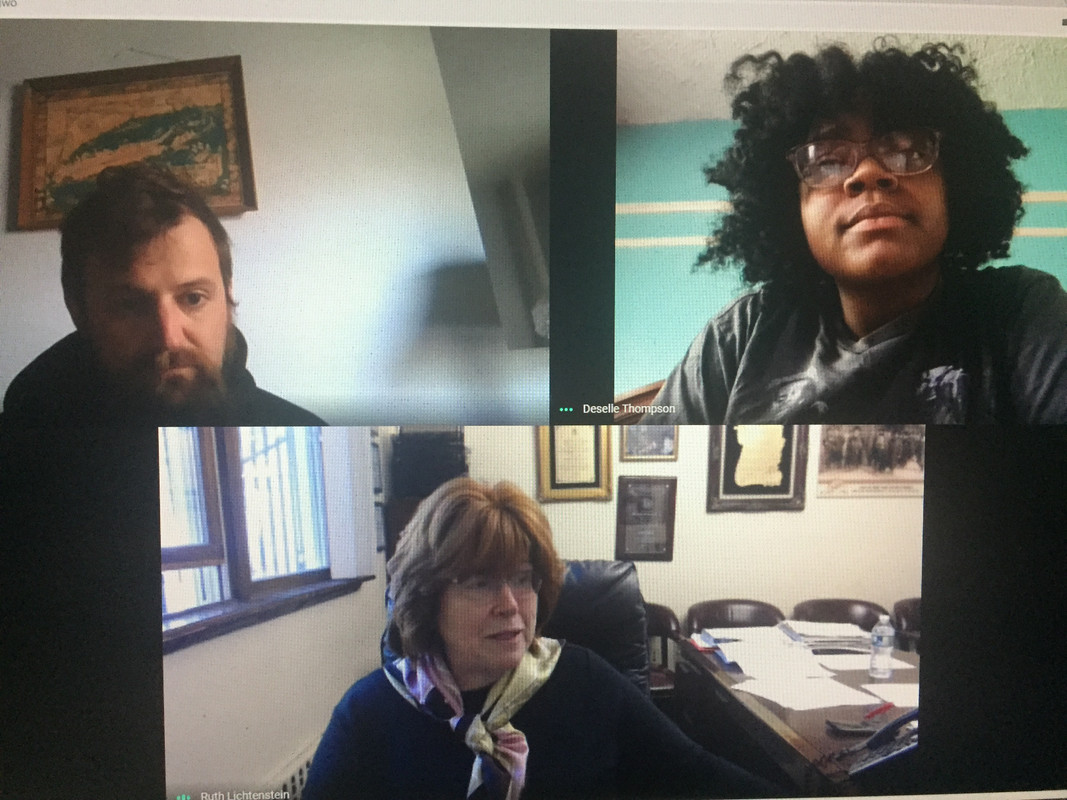
If you don’t already know, Project Witness is an organization dedicated to making the stories of those whose lives were greatly impacted by the Holocaust heard.
Project Witness provides assistance for Holocaust education while giving full devotion to its essential mission which researches and discovers the physical and emotional pain of the stories Holocaust survivors have to tell.
The creator and founder of Project witness is Ms. Ruth Lichtenstein. On May 20, Ms. Lichtenstein met with us to share her story and what Project Witness is all about.
Below are interviews conducted by Deselle Thompson, WHSAD sophomore, and myself, Mahalia Saint-Eloi.
What are some existing systems or programs of the project witness and how do they measure success?
“We started to develop and ten years ago, after the book of history was published, we realized that in the book each page was not enough, and we started to develop some of the programs that surrounded Jewish neighborhoods. In our eyes, the program is being measured successfully if we manage to reach out to the younger generation and deliver our message. Our message is about understanding, respect, and tolerance. We are trying to introduce the program and the story about what happened. In my life, I was a poor child of two Holocaust survivors.”
“This is my mother at age 15 and a half. This was after liberation and on top you can see her certificate. She was trying to get her certificate to continue her life. And here is her signature.”

meet meeting
“This is from the original certificate that allows her to go to Palestine to stamp her visa. What she went through at this time is not for, you know, pleasureful conversation. All I will tell you is the two hours after liberation was not a good place for many many reasons for any to return. She did not speak for two and a half years. So we’re talking about my childhood and my life. I see myself as a representative for both my parents and I tell you-reach out and have a human touch and explain to people what happened and how careful we have to be not to repeat it for our human accomplishment. “
What motivated you to start Project Witness?
“The joke would be I stated project witness at the age of 7 or later on. I don’t know if this is a joke, but I was seven years old when the Eichmann trials began in Israel. Eichmann was the person who was in charge of the technical side of the Final Solution. One day during the court of the trial, I heard a knock on the door. There stood a man by the name of Liam. He was together with my mother in hiding for 6 months in Warsaw, the capital of Poland. Now, this is the second story, however, he was like an uncle because we didn’t have mother’s parents; they were killed. So, we didn’t have uncles or aunts, and he was considered like an uncle. He would always give me candies, chocolates, you can imagine. He always had a smile on his face, and here he would knock on the door, and he looked like he was on the verge of tears. So, I told my parents and they took him into the bedroom and locked the door. A few moments later, I heard my papa beating and stomping the ground. I knew that these were not my parents, and I understood that something very wrong happened, but I didn’t understand why Liam was crying. It took me many years to understand that my parents, whom I loved so much and a friend that I respected so much, had emerged from a time of calm to a unique of hell. It took years to find out about the Holocaust and to understand that they erected a kind of wall in front of them in order to pretend to us, the children, that anything is possible. So, we lived a very happy childhood. Not knowing that this was going on, but when I grew up, I learned that we have to continue. That is why Project Witness is my life mission. At the age of 7, or 27, or 47, it doesn’t matter. You have to understand that you can change the world, and that is one of my life missions.”
What would you say the biggest risk was/is facing your organization?
“Misunderstanding what we are trying to achieve. They would say things like “What do you want here? We have our own issues. This is not a major issue. This is not as big of an issue as our own. If we live here in New York City or out of the city, we have to understand that without understanding respect and tolerance we will not be able to live. Let’s share our stories. Let’s share our experiences and understand that we need to respect each other and how we have to understand each other and what can we learn from all of that will help us in the future.”
As your parents were Holocaust survivors, did they often speak with you about their experience?
“My father didn’t speak; he wrote. He wrote stories for himself and other people. My mother told stories but not in the order, she jumped around from when she was 15, to 10, to her liberation.”
How did you establish Project Witness?
“It started with Witness to History because I felt that there were no textbooks that gave enough information about the Holocaust. Project Witness is my life’s work and there is always a joke on whether I started it when I was 7 or 47, but nevertheless, it’s been my life’s work.”
What is your opinion on the portrayal of the Holocaust through modern media? In general, would you say that Holocaust is properly represented?
“We have to be very careful not to cross the red line between an authentic story and what the movie is showing. It’s all about carrying the message. How should we represent it to be really authentic and not just a movie? I think people can use their own intelligence to discern what is truly authentic and a dramatization for themselves.”
How do you select material?
“We have a researcher and we try to interview as many survivors as we can. We’re also in touch with many different organizations and museums with which we all work together to get the best material.”
